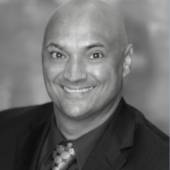Earthquake Preparedness: What To Do AFTER an Earthquake
Susan Laxson of Palm properties has written this informative post on earthquake preparedness. She has been kind enough to allow me to share it with you.
Susan is the premier Realtor® serving La Jolla, Carmel Valley and surrounding areas. Contact her with any of your real estate related questions.
This is third in a series on what to do BEFORE, DURING and AFTER an earthquake.
What are you supposed to do AFTER an earthquake? How can you protect your family and loved ones? First and foremost, be sure to have a disaster preparedness kit ready for you and your family. According to information from the Federal Emergency Management Agency (FEMA), disaster preparedness and supplies kits are essential because they help people stay self-sufficient after an emergency.
According to information from FEMA and the Red Cross , here are a few of the essential items your kit should contain to help keep your family safe in case of a disaster:
• Water. Ready.gov recommends one gallon of water per person per day. Your kit should include at least a three-day supply of water for you and your family.
• Non-perishable food. The Red Cross recommends you keep at least a three-day supply of non-perishable goods in case of an evacuation, and up to two weeks of food in your home.
• Battery-powered flashlight and radio. Electricity could be out for several days or even several weeks after an emergency. Both FEMA and the Red Cross recommend a NOAA weather radio.
• Medications and first-aid kit. The Red Cross suggests you keep a seven-day supply of medication and supplies in your kit.
• Multipurpose tool.
• Sanitation and personal hygiene items.
• Cash. Without electricity to power an ATM or credit card readers at stores, your debit and credit cards might be of little use during a disaster.
• Cell phones with chargers. FEMA recommends inverter or solar chargers.
• Family and emergency contact information.
• Extra clothing and blankets.
Other items in your kit can depend on your families' unique needs. Don't forget about infant formula, pet food and supplies. The Red Cross also suggests adding items like games or activities for children, extra house and car keys, matches and plastic sheeting to your kit.
Keeping an emergency preparedness kit on hand can help you and your family be ready should disaster ever strike. It is also important to keep the kit in an easily-accessible location in your home and to teach children how to use it.
WHAT TO DO AFTER AN EARTHQUAKE
Expect aftershocks. These secondary shockwaves are usually less violent than the main quake but can be strong enough to do additional damage to weakened structures and can occur in the first hours, days, weeks, or even months after the quake.
Listen to a battery-operated radio or television. Listen for the latest emergency information.
Use the telephone only for emergency calls.
Open cabinets cautiously. Beware of objects that can fall off shelves.
Stay away from damaged areas. Stay away unless your assistance has been specifically requested by police, fire, or relief organizations. Return home only when authorities say it is safe.
If you live along the coast, learn from Japan and be aware of possible tsunamis. These are also known as seismic sea waves (mistakenly called "tidal waves"). When local authorities issue a tsunami warning, assume that a series of dangerous waves is on the way. Stay away from the beach.
Help injured or trapped persons. Remember to help your neighbors who may require special assistance such as infants, the elderly, and people with disabilities. Give first aid where appropriate. Do not move seriously injured persons unless they are in immediate danger of further injury. Call for help.
Clean up spilled medicines, bleaches, gasoline or other flammable liquids immediately. Leave the area if you smell gas or fumes from other chemicals.
Inspect the entire length of chimneys for damage. Unnoticed damage could lead to a fire.
Inspect utilities.
Check for gas leaks. If you smell gas or hear blowing or hissing noise, open a window and quickly leave the building. Turn off the gas at the outside main valve if you can and call the gas company from a neighbor's home. If you turn off the gas for any reason, it must be turned back on by a professional.
Look for electrical system damage. If you see sparks or broken or frayed wires, or if you smell hot insulation, turn off the electricity at the main fuse box or circuit breaker. If you have to step in water to get to the fuse box or circuit breaker, call an electrician first for advice.
Check for sewage and water lines damage. If you suspect sewage lines are damaged, avoid using the toilets and call a plumber. If water pipes are damaged, contact the water company and avoid using water from the tap. You can obtain safe water by melting ice cubes.
Make sure that everyone in your family is safe and don't panic. Be prepared ahead of time and be safe!
To view any La Jolla, California home for sale or rent, contact us anytime at 858-775-1116 or visit our La Jolla Real Estate website to learn more about La Jolla and its developments.
Want to learn more about what's happening in La Jolla, CA? Join La Jolla News on Facebook!
Copyright © 2008 - 2011 Susan Laxson. All Rights Reserved. Information from sources deemed reliable, but not guaranteed.

Comments(1)